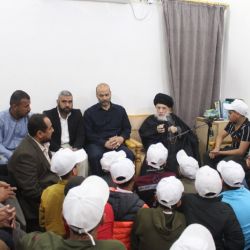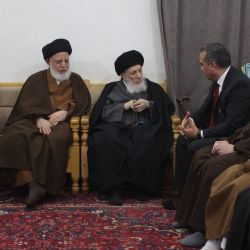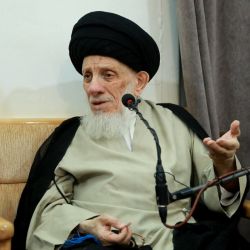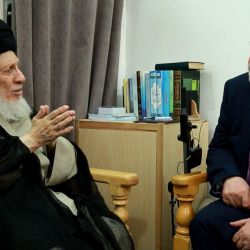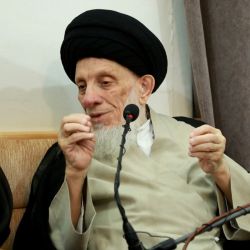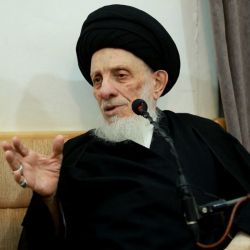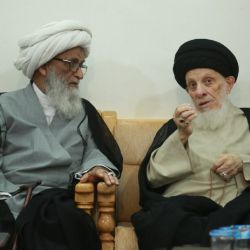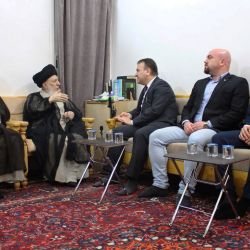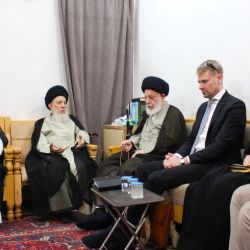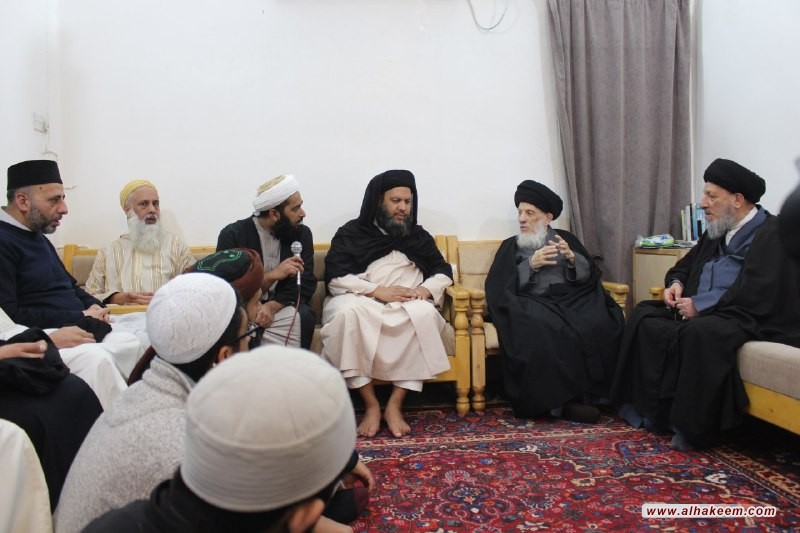
Grand Ayatollah Sayyid Mohammed Saeed Al-Hakeem received a Sufi group from the UK on Thursday, 2nd January 2020. He advised that the Muslims in all nations across the world to increase the dialogue, cooperation and affection amongst each other. He emphasized the importance of unity, through entrenching the commonalities and strengthening them.
His Eminence narrated to his guests the narration of the Holy Prophet (peace be upon him and his progeny): “Compassion has not been placed in something, but that it adorns it; and foolishness has not been placed in anything, but that it causes it disgrace.”
His Eminence called all Muslims to act upon the straight path shown by the Holy Quran and the teachings of the Prophet (peace be upon him and his progeny), with beautiful ethics, taking the Prophet as an example in how he was able to establish his personality amongst the polytheists, with his beautiful etiquettes and ethics.

